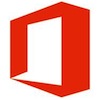Reuters reports that although Microsoft has a complete version of its Office productivity suite ready to go on the iPad and iPhone, the company continues to hold it back from release until new CEO Satya Nadella gives the OK for a launch date.

Reuters:
Tired of waiting for Office to be optimized for their mobile gadgets, a growing contingent of younger companies is turning to cheaper, simpler and touch-friendly apps that can perform word processing and other tasks in the cloud.
One great example of a missed opportunity for Microsoft is Artivest Holdings Inc, a New York-based financial services startup. The company uses an app called Quip, an iPad app that combines word processing and messaging, to handle all but the most sensitive files.
“There are no more Microsoft Word documents being circulated. If someone emails me a Word document, I’ll tell them to put it in Quip,” said Artivest Chief Investment Officer David Levine.
“If I’m walking to and from home, or going to an appointment, I can review or edit on my iPad. Not being tied to my desk, that’s a big pro,” he said.
Microsoft reportedly has a full iOS version of Office ready to go, but it waits for new CEO Satya Nadella, who took over in February, to wave the green flag.
Nadella is faced with needing to grow the Office customer base, but he also needs to balance that demand with the company’s flagship Windows product.
Investors and analysts have long urged Microsoft to make versions of Office for both iOS and Android devices, instead of keeping it bound to the declining Windows desktop. According to one analyst, Microsoft could be giving up $2.5 billion in revenue by not offering Office for the iPad.
Other analyst say it may be already too late for Microsoft to win over iPad users.
“Look at the applications that are on the rise to support mobile. It is not Microsoft OneNote or Word. It’s Dropbox, or Evernote,” said Ted Schadler, an analyst at tech research firm Forrester. “It’s really about being everywhere. That’s an important, immediate decision that Satya’s going to have to drive.”
The rise of such apps as Paper, Smartsheet, Evernote, the previously mentioned Quip, and even Apple’s own iWork suite for iOS devices is eating away at the Office franchise. Reuters notes that is particularly true at mid-sized and smaller companies, who tend to squeeze a dollar until it screams, and who aren’t as dependent on the legacy Office platform.
“Bring Your Own Device” is also eating away at Microsoft’s dominance. Research firm Ovum says 57% of all employees use a personal smartphone or tablet to access corporate data, while 70% of tablet owners use their personal tablets at work at some point.
“Microsoft rose to dominance in an age when the CIO (chief information officer) really held the keys to IT decision making,” says Adam Tratt, a former Office executive who is now chief executive of Seattle-based Haiku Deck, an iPad-based presentation app. “Over the past five years, BYOD has really eroded the level of control that many CIOs have.”


